Paul Baumer and his friends Albert and Muller, egged on by romantic dreams of heroism, voluntarily enlist in the German army. Full of excitement and patriotic fervour, the boys enthusiastically march into a war they believe in. But once on the Western Front, they discover the soul-destroying horror of World War I.
Related Movies

Grand Illusion (1937)
A group of French soldiers, including the patrician Captain de Boeldieu and the working-class Lieutenant Maréchal, grapple with their own class differences after being captured and held in a World War I German prison camp. When the men are transferred to a high-security fortress, they must concoct a plan to escape beneath the watchful eye of aristocratic German officer von Rauffenstein, who has formed an unexpected bond with de Boeldieu.
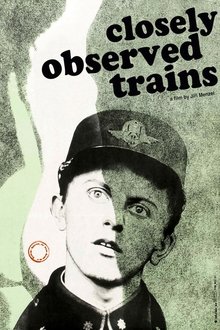
Closely Watched Trains (1966)
At a village railway station in occupied Czechoslovakia, a bumbling dispatcher’s apprentice longs to liberate himself from his virginity. Oblivious to the war and the resistance that surrounds him, this young man embarks on a journey of sexual awakening and self-discovery, encountering a universe of frustration, eroticism, and adventure within his sleepy backwater depot.
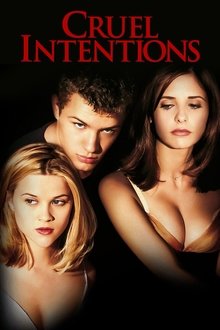
Cruel Intentions (1999)
Slaking a thirst for dangerous games, Kathryn challenges her stepbrother, Sebastian, to deflower their headmaster's daughter before the summer ends. If he succeeds, the prize is the chance to bed Kathryn. But if he loses, Kathryn will claim his most prized possession.

Lolita (1962)
Humbert Humbert is a middle-aged British novelist who is both appalled by and attracted to the vulgarity of American culture. When he comes to stay at the boarding house run by Charlotte Haze, he soon becomes obsessed with Lolita, the woman's teenaged daughter.
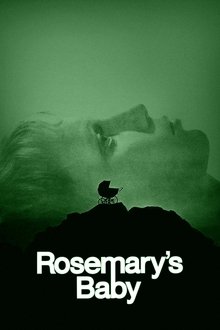
Rosemary's Baby (1968)
A young couple, Rosemary and Guy, moves into an infamous New York apartment building, known by frightening legends and mysterious events, with the purpose of starting a family.

Animal Farm (1999)
Animals on a farm lead a revolution against the farmers to put their destiny in their own hands. However this revolution eats their own children and they cannot avoid corruption.

The Bridge on the River Kwai (1957)
The classic story of English POWs in Burma forced to build a bridge to aid the war effort of their Japanese captors. British and American intelligence officers conspire to blow up the structure, but Col. Nicholson, the commander who supervised the bridge's construction, has acquired a sense of pride in his creation and tries to foil their plans.

2046 (2004)
Women enter and exit a science fiction author's life over the course of a few years after the author loses the woman he considers his one true love.
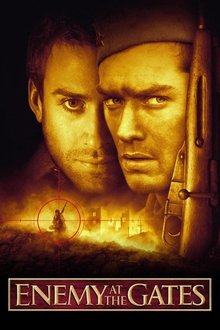
Enemy at the Gates (2001)
A Russian and a German sniper play a game of cat-and-mouse during the Battle of Stalingrad in WWII.

Black Hawk Down (2001)
When U.S. Rangers and an elite Delta Force team attempt to kidnap two underlings of a Somali warlord, their Black Hawk helicopters are shot down, and the Americans suffer heavy casualties, facing intense fighting from the militia on the ground.

Saving Private Ryan (1998)
As U.S. troops storm the beaches of Normandy, three brothers lie dead on the battlefield, with a fourth trapped behind enemy lines. Ranger captain John Miller and seven men are tasked with penetrating German-held territory and bringing the boy home.
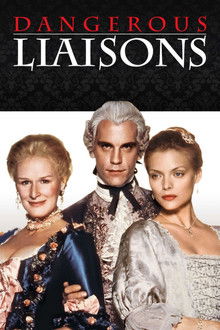
Dangerous Liaisons (1988)
In 18th century France, Marquise de Merteuil asks her ex-lover Vicomte de Valmont to seduce the future wife of another ex-lover of hers in return for one last night with her. Yet things don’t go as planned.

Sliver (1993)
A woman moves into a Manhattan apartment, where she learns that the previous tenant's life ended under mysterious circumstances.

Planet of the Apes (1968)
Astronaut Taylor crash lands on a distant planet ruled by apes who use a primitive race of humans for experimentation and sport. Soon Taylor finds himself among the hunted, his life in the hands of a benevolent chimpanzee scientist.

The Woman of Wrath (1984)
A woman, married off to an abusive butcher, is overpowered by the twin forces of patriarchy and tradition in Taiwan during circa 1920 to 1945.

Little Lady (1961)
A taxi driver and an orphan girl meet each other for the first time through an arranged marriage. The orphan girl grows up to inherit a family fortune and turns out to be the lady of a mansion, by means of a secret benefactor.
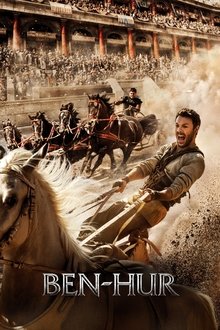
Ben-Hur (2016)
A falsely accused nobleman survives years of slavery to take vengeance on his best friend who betrayed him.

Four Minus Three (2026)
Barbara is a professional clown, as is her partner Heli. The two children call them a "clown family". Barbara believes in failure and in making fun of what doesn't work. In the ability to turn things around and see the positive in the negative. But Barbara's attitude is fundamentally challenged when she loses her husband and two children in a traffic accident. Will her profoundly positive view of the world help her to find her way back into life?

My Friend An Delie (2026)
Li Mo and An Delie, who have very different personalities, become close friends because of soccer, but an accident makes Andrei disappear from Li Mo's memory along with his youthful past. Years later, Li Mo and An Delie “reunite” on the way to his father's funeral, and a period of dusty memories are gradually unveiled. ......
